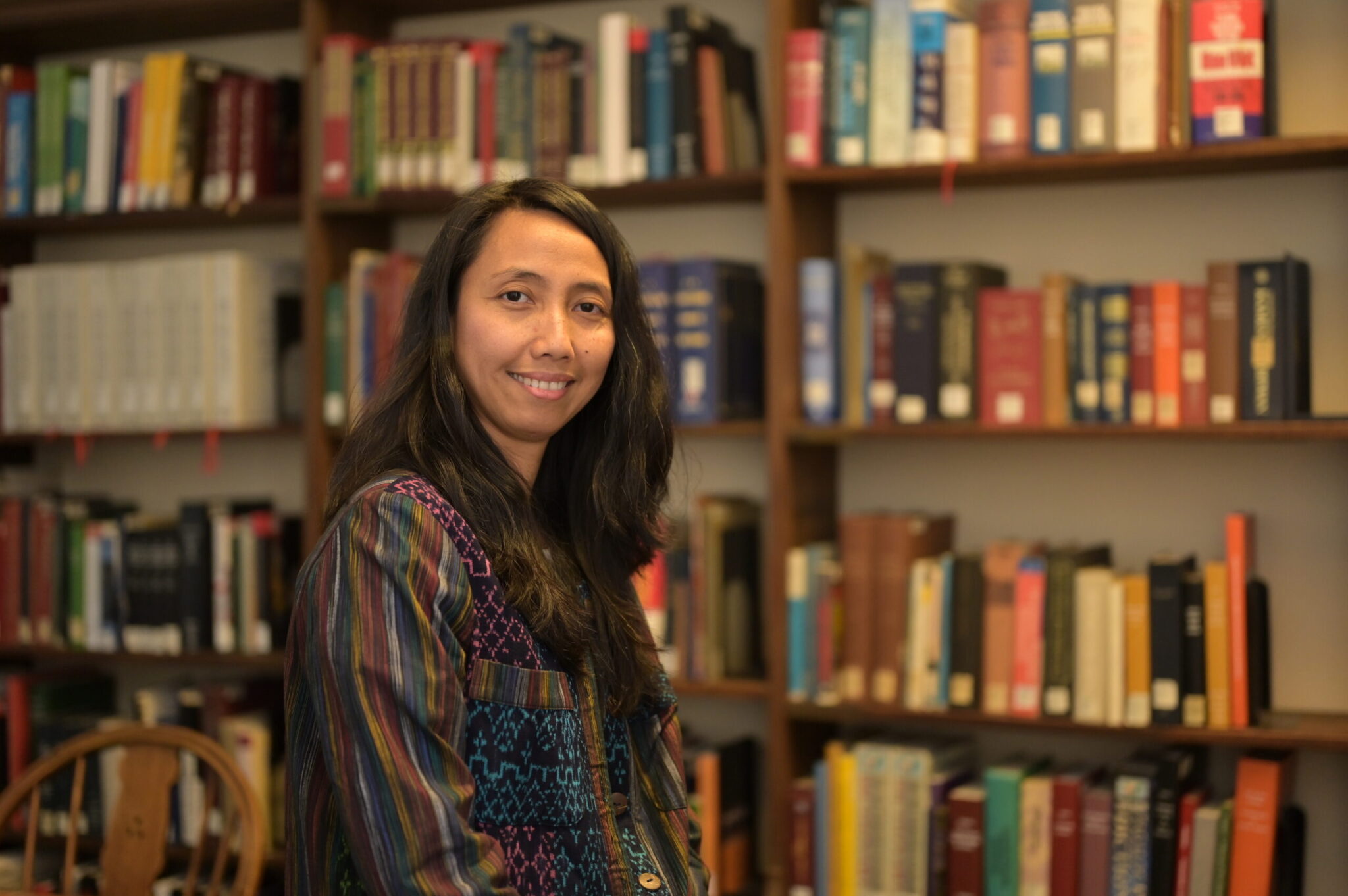PROFILE: Dinny Risri Aletheiani makes Indonesian personal
For Aletheiani, a curriculum studies scholar with Javanese roots, Indonesian is more than about language skills — it’s about people.

Linxi Cindy Zeng, Contributing Photographer
When Dinny Risri Aletheiani first stepped foot on Yale’s campus in 2013 and reviewed the curriculum for Indonesian, she was dissatisfied.
Aletheiani, who identifies as part of the Indonesian diaspora in the United States, had taken notes on how to develop curriculum on the national language of the fourth largest country in the world during her early days at Arizona State University — where she received her doctorate in curriculum studies 15 years ago. There, in a county with approximately 1,000 Indonesian Americans, Aletheiani would teach undergraduate courses on Indonesian language, research and culture, designing instructional materials to reach students who were geographically and culturally disconnected from Southeast Asia’s most spoken language.
So Aletheiani was disappointed at Yale’s existing Indonesian curriculum when she arrived at the University 10 years ago.
“We didn’t have a class above [Indonesian] 150,” Aletheiani said.
Over the next decade, Aletheiani would take a crucial role in the petition to develop new courses for Yale students to examine the Indonesian language and culture, such as “Advanced Indonesian: Special Topics” and “Research and Creative Project on Indonesia.” Her goal was to create more spaces for students to continue studying Indonesian throughout all four years of college.
To Aletheiani, the popularity of the Indonesian language on campus is not surprising. She suggested two main reasons Indonesian has attracted what she considers a loyal following at Yale — first, many high schools often offer an abundance of courses in European language families, and students who do choose to learn an Asian language often lean toward east Asian tongues such as Mandarin. But once admitted first years come to Yale, they are often ready for a change.
“[Indonesian is] something new, something unique,” Aletheiani said. “So [students] look at the blue book and look at Indonesian.”
Second, Indonesian is uniquely well-equipped for the English speaking tongue.
Unlike other Asian languages, Indonesian is not tonal and uses the same 26-letter alphabet as English. Neither English nor Indonesian uses accent marks, and words in the latter language are often phonetic. Yet the language itself has its own “quirks and uniqueness,” Aletheiani told the News.
Aletheiani said that she notices many Yale students in her class continue to take courses in the Indonesian language past the minimum requirement. For many, this means taking advanced classes and conducting special projects in Indonesian.
The secret to promoting continued interest from students is revealed in the way class curriculums are structured, Aletheiani suggested. In her own seminar syllabi, Aletheiani instills texts and assignments which uniquely promote a cultural understanding as well as the socioeconomic context of Indonesia. Since most who learn the language at Yale are not native Indonesians, Aletheiani believes that it is important to prioritize a sense of investment in the country’s customs and history rather than over simple grammatical rules and structures.
Emma Seitz ’23 told the News that she took Indonesian after she was disillusioned with the Spanish education she received in middle and high school.
“It was just so language focused, like ‘Oh, just memorize these words, learn this grammar’ and that was just not something that got me excited at all,” Seitz said. “So I came here and I was just like, I want to take something totally different.”
Seitz would take her first Indonesian course her first year, where the focus was not on grammar, but rather on sociology, anthropology and culture — all of which grabbed her attention.
As Seitz began to take specific courses under Aletheiani, she not only became more invested in Indonesia, but also felt that Aletheiani was “very invested in [Seitz’s] success” as a student. When Seitz received research funding to visit Indonesia last summer, Aletheiani not only set up Seitz’s trip, but also “made such an effort” to meet Seitz once she was there.
Mark Capell ’25, who is on the Yale baseball team, told the News that Aletheiani “always comes to class with a smile.” He added that Aletheiani invested herself in his success, both in and out of the classroom.
Once, when Capell and his teammates were eating in Commons, Aletheiani passed by their table and recognized Capell. She sat with the team and had a “great conversation” with them all.
“That’s just who she is,” Capell said. “She loves getting to know people and she’s super friendly with everyone she meets.”
Aletheiani told the News that she enjoys watching the “personal transformation” of her students as they navigate a new language, whether through classes or travel fellowships. By focusing language through the relationships between the people engaged in its study, Aletheiani is able to achieve her goal.
“Language is much more fun and meaningful and personal,” Aletheiani said. “People can relate to that.”
Aletheiani received her bachelor in English Language Education from Satya Wacana Christian University, Salatiga, Indonesia.







